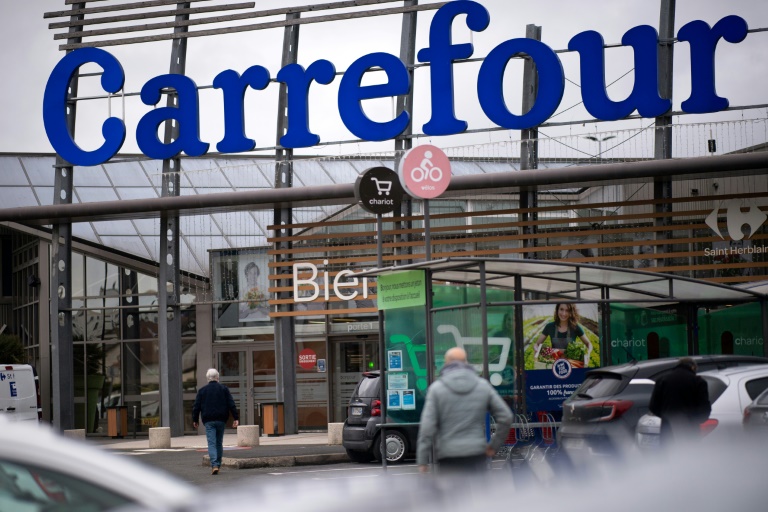
PARIS: Canadian convenience store chain Couche-Tard has reportedly pulled out of a multi-billion euro takeover of supermarket giant Carrefour after the French government said it would veto the deal.
Negotiations over the 16 billion euro ($19.5 billion) deal ended after a meeting between the French Minister of the Economy Bruno Le Maire and the founder of Couche-Tard Alain Bouchard, Bloomberg news agency said, citing sources.
French ministers had insisted Friday they would not agree to the takeover because it could jeopardise food security, an even more important consideration given the coronavirus pandemic.
In an attempt to reassure ministers, Bouchard had promised to invest billions in Carrefour, said he would maintain employment for two years and that the group would be listed on the Paris Stock Exchange in parallel with Canada, Bloomberg reported.
Contacted by AFP, neither Couche-Tard nor Carrefour had confirmed the information on Friday evening.
Although talks had stopped, anonymous sources cited by Bloomberg said negotiations could resume if the French government changes its position.
But on Friday, France's Economy Minister made his choice public, telling BMTV and RMC: "My position is a polite, but clear and definitive 'No'."
"Food security is a strategic consideration for our country and one does not just hand over one of the large French distributors like that," Le Maire said.
"Carrefour is the biggest private sector employer in France with nearly 100,000 employees," he noted, and the group accounts for 20 percent of the food distribution market in the country.
The French statements have not convinced the Canadian government.
A Canadian federal source said while they could understand concerns over allowing a foreign firm to take over such a large national employer, concerns over food security were unsubstantiated.
"But we cannot accuse a leading Canadian company like Couche-Tard of endangering the food sovereignty of an entire country," the source, who requested anonymity, told AFP.
On Wednesday, Couche-Tard submitted a non-binding offer for Carrefour, valuing the group at more than 16 billion euros ($19.5 billion).
Le Maire made clear immediately that he was not in favour of a deal involving "an essential link in food security for the French, of food sovereignty".
The government's reaction had caused "surprise" at Carrefour itself, according to sources who said the comments were "premature" given that merger discussions had barely begun.
"We haven't decided yet whether the interest shown is attractive for us," one company official said on condition of anonymity earlier in the week.
Carrefour has more than 12,300 stores of various formats in more than 30 countries and in 2019 generated a net profit of 1.3 billion euros ($1.5 billion) on revenue of 80.7 billion euros ($97.4 billion).
It employs 320,000 people worldwide.
Couche-Tard has a worldwide network of more than 14,200 stores and earned a net profit of $2.4 billion on sales of $54 billion in its last complete year.
In the United States and several European countries, as well as in Latin America and southeast Asia, it operates under Circle K and other brands.